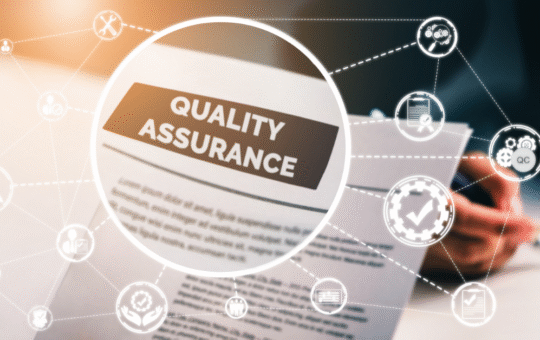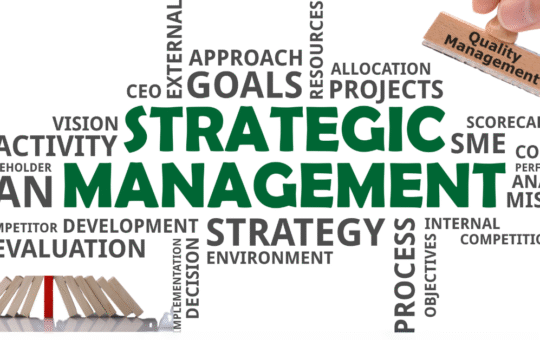
Level 5 Diploma in Advanced Quality Auditing and Compliance
- Gain advanced knowledge of quality auditing, compliance, and regulatory frameworks.
- Develop the skills necessary to conduct high-level audits and manage compliance activities across industries.
- Learn to evaluate business processes, identify areas for improvement, and recommend corrective actions.
- Enhance your career prospects by obtaining an internationally recognized qualification in quality auditing.
- Understand the principles and objectives of quality auditing and compliance.
- Learn to conduct audits following international standards such as ISO 9001 and ISO 19011.
- Understand the legal and regulatory requirements for compliance in various industries.
- Develop the ability to assess organizational processes, identify risks, and recommend improvements.
- Learn how to report audit findings effectively and suggest corrective and preventive actions.
- Introduction to Quality Auditing and Compliance
- Key principles of auditing and compliance in various industries.
- The importance of audits in ensuring continuous quality improvement.
- Auditing Techniques and Standards
- Overview of international standards like ISO 9001, ISO 19011, and ISO 17021.
- Conducting internal and external audits using structured methodologies.
- Risk Assessment and Process Evaluation
- Techniques for identifying and evaluating risks within organizational processes.
- The role of audits in risk management and compliance assurance.
- Legal and Regulatory Frameworks
- Key legal requirements for industries such as healthcare, manufacturing, and finance.
- Understanding compliance in the context of environmental, health, and safety regulations.
- Audit Reporting and Corrective Actions
- Writing clear and concise audit reports.
- Implementing corrective and preventive actions following audit findings.
- Continuous Improvement and Compliance Monitoring
- Using audit results to drive organizational improvements.
- Setting up ongoing compliance monitoring systems.
- Advance to higher qualifications in auditing or compliance management.
- Pursue roles such as Senior Quality Auditor, Compliance Manager, Risk Assessment Specialist, or Quality Assurance Director.
- Lead audits and compliance functions in various sectors such as healthcare, manufacturing, finance, and more.
- Expert Training: Learn from experienced auditors and compliance professionals who bring real-world knowledge to the classroom.
- Industry-Relevant Content: Tailored to meet the needs of organizations adhering to quality and regulatory standards.
- Hands-On Approach: Practical auditing experience to equip learners with the necessary skills for auditing excellence.
- Globally Recognized Certification: A certification that provides opportunities for career advancement in quality auditing and compliance management worldwide.
Study Units
- Introduction to Quality Auditing and Compliance
- Key principles of auditing and compliance in various industries.
- The importance of audits in ensuring continuous quality improvement.
- Auditing Techniques and Standards
- Overview of international standards like ISO 9001, ISO 19011, and ISO 17021.
- Conducting internal and external audits using structured methodologies.
- Risk Assessment and Process Evaluation
- Techniques for identifying and evaluating risks within organizational processes.
- The role of audits in risk management and compliance assurance.
- Legal and Regulatory Frameworks
- Key legal requirements for industries such as healthcare, manufacturing, and finance.
- Understanding compliance in the context of environmental, health, and safety regulations.
- Audit Reporting and Corrective Actions
- Writing clear and concise audit reports.
- Implementing corrective and preventive actions following audit findings.
- Continuous Improvement and Compliance Monitoring
- Using audit results to drive organizational improvements.
- Setting up ongoing compliance monitoring systems.
By completing this course, learners will:
- Understand the principles and objectives of quality auditing and compliance.
- Learn to conduct audits following international standards such as ISO 9001 and ISO 19011.
- Understand the legal and regulatory requirements for compliance in various industries.
- Develop the ability to assess organizational processes, identify risks, and recommend improvements.
- Learn how to report audit findings effectively and suggest corrective and preventive actions.
The Level 5 Diploma in Advanced Quality Auditing and Compliance is ideal for professionals in the auditing, quality, and compliance sectors who wish to develop advanced skills and knowledge in quality management and regulatory compliance. This course is suited for:
Senior Quality Auditors
Professionals already working in quality auditing who seek to deepen their expertise in conducting high-level audits and managing compliance activities across industries.
Compliance Managers
Individuals responsible for overseeing compliance with legal and regulatory requirements within an organization, aiming to enhance their ability to conduct thorough audits and ensure adherence to industry standards.
Risk Assessment Specialists
Those involved in identifying, evaluating, and mitigating risks within organizational processes, who wish to refine their auditing techniques and improve their understanding of compliance and regulatory frameworks.
Quality Assurance Directors
Senior professionals who oversee quality assurance across an organization and want to acquire the skills to lead auditing functions and ensure ongoing compliance with international standards.
Internal and External Auditors
Professionals tasked with conducting both internal and external audits who want to build advanced auditing skills and work in compliance with international standards such as ISO 9001 and ISO 19011.
Regulatory Compliance Officers
Officers working in industries such as healthcare, finance, or manufacturing who aim to enhance their understanding of auditing and regulatory compliance frameworks to maintain standards and ensure legal adherence.
Consultants in Quality and Compliance
Consultants advising organizations on quality control, auditing, and regulatory compliance who wish to upgrade their knowledge of advanced auditing techniques and compliance management.
Our assessment process is designed to ensure every learner achieves the required level of knowledge, skills, and understanding outlined in each course unit.
Purpose of Assessment
Assessment helps measure how well a learner has met the learning outcomes. It ensures consistency, quality, and fairness across all learners.
What Learners Need to Do
Learners must provide clear evidence that shows they have met all the learning outcomes and assessment criteria for each unit. This evidence can take different forms depending on the course and type of learning.
Types of Acceptable Evidence
Assignments, reports, or projects
Worksheets or written tasks
Portfolios of practical work
Answers to oral or written questions
Test or exam papers
Understanding the Structure
Learning outcomes explain what learners should know, understand, or be able to do.
Assessment criteria set the standard learners must meet to achieve each learning outcome.
Assessment Guidelines
All assessment must be authentic, current, and relevant to the unit.
Evidence must match each assessment criterion clearly.
Plagiarism or copied work is not accepted.
All learners must complete assessments within the given timelines.
Where applicable, assessments may be reviewed or verified by internal or external quality assurers.
Full learning outcomes and assessment criteria for each qualification are available from page 8 of the course handbook.
Top Courses
No results found.
Related Courses
Let's Get in touch
Deleting Course Review
Course Access
This course is password protected. To access it please enter your password below:



